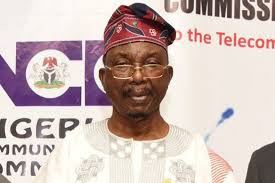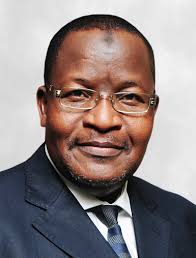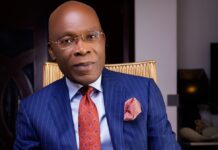By Aaron Ukodie
While some may argue that the Nigerian economy has not done so very well in 2019, especially as relating to the well-being of Nigerians, that would not be applicable to the telecom sector, where noticeable improvements were recorded at all fronts.

And no one would begrudge the Nigerian Communications Commission (NCC) if it beat its chest, and celebrates its achievements in pushing forward the frontiers of telecommunication development and helping the national economy to grow in the outgoing year.
Telecom regulatory work has become more sharpened, opening doors for the coming of new technologies; stakeholders’ engagement continued to thrive with robust determinations that help smoothing the operating environment, though improvements in the new year are envisaged.
In 2019, the Commission’s work has increased the country’s gross domestic product (GDP) by 3 per cent, from its 2018 level of 10 per cent; number of mobile voice subscribers have gone up from 17 million to 180 million, while internet subscribers have shot up to 123.5 million, up from 114.3 million.
Broadband penetration that stood at 32.34% (indicating 61,732,130 Nigerians on 3G and 4G networks) in 2018 climbed to 37.87% (indicating 72,289,389 on 3G and 4G networks).
For the first time in over 15 years, telecommunication companies, such as MTN, which resisted listing on the Nigerian stock exchange were compelled by the NCC to do so, a move that has boosted the country’s capital market operations.

The MTN listing, made possible by the outstanding and effective regulatory effort of the NCC led by professor, Umar Danbatta was a remarkable developments as it served as tonic to other telcos to follow in the same direction such as the listing of Airtel.
The Commission essentially facilitated the landmark listing of the country’s largest telecommunications operator on NSE in line with its regulatory activities as enshrined in the Nigerian Communications Act (2003) and other subsidiary regulations to promote investment, create a level-playing field for all licensees, ensure compliance to existing telecoms laws and facilitate delivery of top-notch quality of services (QoS) to the consumers.
Through this smart regulation and intervention by the NCC, leading to the listing of MTN on the NSE, the Commission has opened another chapter in the history of telecommunication industry by empowering Nigerians to control, own and manage one of dominant telecommunications companies in the country by owning shares.
“The MTN listing has helped to translate into action, an important objective of the Commission, which is to promote local investment and ownership in the telecom sector. Also, with MTN shares available in the capital market, it is expected that Nigerians will buy shares and by purchasing the shares of MTN, they will be financially empowered and be socially transformed,” Danbatta had said at a forum.
According to him, “It is instructive to state here that one of the greatest advantages of the MTN listing, facilitated by the NCC, is the implication it has on opening up the telecommunications industry for greater investment profile it gives Nigerians the opportunities to invest in publicly-quoted companies like MTN, which is the leader in the telecommunications industry in the country and easily one of the continental leaders.”
“In addition to benefits to the consumers, we all know that telecoms is a capital-intensive industry and of late, we found out that the inflow of Foreign Direct Investment (FDI) into the sector has not been as much as it used to be and there is so much for the telcos to still do in terms of expansion and this expansion requires capital. Industry issue bordering on poor quality of service is being partly traced to lack of sufficient infrastructure covering the entire country.
“One of the benefits of MTN listing and those of other operators to follow, therefore, is that the telco would be able to raise capital for expansion which, in turn, will bring about an improvement in the quality of service and quality of experience for the consumers of telecoms services, which is also a cardinal function of the Commission.”

Undoubtedly, despite the high volatility seen in the Nigerian capital market for the year 2019, the listing of the biggest telecommunication companies, MTN Nigeria and Airtel Africa has helped in making the market capitalisation bullish.
Today, capital market regulator and shareholders bodies have commended the effort of the NCC in making the capital market thick through facilitating the listing of MTN, which was fallout of the conditions the telecom regulator gave MTN following the telco’s violation of SIM registration rule in the telecommunication sector.
Already, capital market stakeholders have said MTN Nigeria and Airtel Africa listing on the NSE have boosted investors’ confidence and liquidity, even as the nation’s economy stands to benefit. Based on this feat, capital market stakeholders, who have seen the fillip in the market operations brought about by telecoms listing, are now calling for laws that would compel multinationals, oil and gas companies, telecommunication firms and privatised companies to list on NSE to deepen the market.
With 10 value added services (VAS) aggregator licenses in 2019, competitiveness has been boosted in the VAS segment, while six infrastructure companies are awaiting about N65 billion subsidy from the Commission to develop the country’s broadband network, pushing penetration to 774 local government areas across the country.
The restructuring of VAS market for greater growth has repositioned the sector and its current value estimated at $200 million now has potential to grow to over $500 million in the next few years.
To support broadband deployment, the Commission, this year, approved the 5 G trial on 3.5 GHz and 26 GHz to MTN; developed guidelines on the use of Television White Space (TVWS) to facilitate broadband penetration to underserved and unserved areas; opened up 60 GHz band for unlicensed applications and broadband services; approved the use of 18 and 23 GHz Microwave Frequency bands for point to multi point deployments.
The NCC pioneered 5G trial in Nigeria, was the first telecoms regulator in the West Africa to proactively begin such trial toward unleashing greater digital revolution.
With the trial of 5G ongoing, preparatory to the actual commercial launch starting from 2020, industry stakeholders have commended the Commission for its proactive regulatory role in advancing the country’s technology revolution through 5G which is going to positively impact all sectors of the economy. No doubt, 5G which will offer better download speed and latency use of more applications (IoT-enabled services), needs robust broadband infrastructure to ride on and the NCC, through the InfraCo initiative is enabling this.
Based on recent developments in the global telecommunications industry such as machine to machine (M2M) communications, the Internet of Things (IoT), Over-the-Top (OTT) and others, as earlier stated, and other services made possible by fourth-generation networks and the futuristic 5G/6G technologies, the NCC has considered it imperative for the numbering plan in the country to be reviewed.
The development of the new NNP, will help to provide numbers that will satisfy the needs of the projected 500 million Nigerians to be connected and about 1 billion globally-interconnected machines and devices by 2050.
It would promote efficiency in the allocation of the scarce national resource; promote competition among service providers; eliminate the risk of running short of all categories of numbers; facilitate the introduction and development of new and innovative services and above all, encourage growth of the telecommunications sector and the attendant job creation and contribution to National Gross Domestic Product (GDP), among others.
In a bid to support president Mohammadu Buhari agenda to curb corruption, improve lives and security, the Commission, stepped up measures in his implementation of the Emergency Communications Centre (ECC) project.
The Commission’s efforts in this regards culminated in double recognitions that came the way of the Commission on the one hand and the EVC on the other hand during the 1st Security and Emergency Management Awards held in Abuja on
Thursday, Dec 5, 2019, where the Danbatta received Goodwill Ambassador on Security and Emergency Management in Nigeria while the NCC, as an organisation received CSR Award on Security and Emergency Management in Nigeria.
It has fully activated and made operational, ECCs in Seventeen (17) States across the country and the FCT.
In keeping with its ongoing tradition of driving technology innovations through funding relevant researches in tertiary institutions, the Commission, in May 2019, announced N40 million endowment fund for Bayero University, Kano and the Federal University of Technology, Owerri. The fund will be utilized by the institutions for innovation, research and development in the digital space with an ongoing commitment to expand the list of benefiting institutions.
Also, in June 2019, the Commission again demonstrated its determination to facilitate research and innovation in the telecom industry in Nigeria by presenting the sum of N65 million to eleven (11) universities in Nigeria for innovation, research and development to deliver research result and prototypes that are implementable, commercially-viable and capable of engendering innovation in different sectors of the economy.
To boost digital literacy in higher institution the Commission successfully implemented the supply of laptops in 230 beneficiary institutions at various locations in the country.
It is expected that the NCC would maintain its regulatory independence in the new year of 2020, as it is set to achieve more laurels for the economy with the various regulatory frameworks, interventions and activities it has set for itself in 2019.
Industry players are looking forward that the NCC would not relent in its call to the national assembly to pass the bill that considers telecom facilities in Nigeria as critical national infrastructure with violations attracting penalties.











